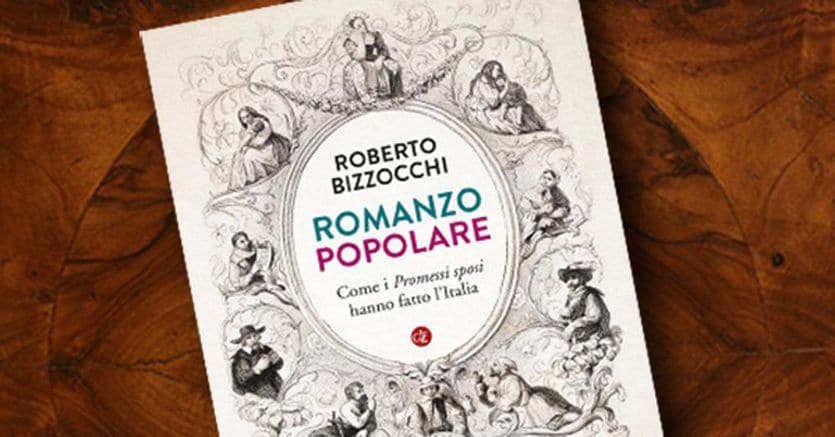Listen to the audio version of the article
There is a common thread that unites some of Roberto Bizzocchi’s most fruitful studies: the search for peculiar traces of the Italian national character. In the “popular novel” represented by the Betrothed, the historian grasps an innovative and original “ethical-political program for the state and the nation”, “still alive and valid” (p. VII). A very timely warning. In fact, ideological questions that have never been remedied continue to prevent Italy from touching with serenity and sincerity the theme of the added value of unity with respect to bell towers, or rather of the variety that acquires strength in unity. In short, the complex process of the Risorgimento remains linked to the image of an inconvenient or even illegitimate relative, or of an inspiring source of a poorer literature than that of the great French or Russian authors, as even the director Luchetti makes the professor say, played by Silvio Orlando, in a famous scene from the film The Bagman.
Heart and Pinocchio
In reality, according to Bizzocchi, the schooling of I promessi sposi has unjustly covered Manzoni’s text with a patina of “religious compunction and accommodating moderation”, which does not account for some aspects of modernity and even radicalism, the result of the vast literary culture of the ‘author. A fate, after all, befell other texts flattened by the fast, sometimes merciless, scholastic teaching. The comparison with Cuore by De Amicis and Pinocchio by Collodi is almost obvious. Written without indulging in erudite annotations, Bizzocchi’s study is aimed, for these reasons, at anyone who is willing to re-read Manzoni’s work, restoring it to its due complexity: historicizing its composition, placing the intellectual biography of the writer “in a European and not a nationalist key ».
A very useful text, therefore, for those who “have a professional duty” to make Italian literature and the history of Italy attractive, through the verisimilar, to an audience of today’s adolescents. From the first chapter, the historian explains how Manzoni , no less Catholic than Chateaubriand and de Maistre, no less connoisseur of cultured Latin than them, had matured the detachment from the classical school from which he came by creating an innovative caesura in the national literary tradition. In the pages of Bizzocchi the young Manzoni fascinated by republican Rome and from Plutarch’s historical models he evolves into an adult writer who finds an authentic source of inspiration in the evangelical and Augustinian message.
Cesare d’Azeglio and March 1821
It is Manzoni who, in March 1821, moves away from Dante’s and Petrarchan examples, substantiating the concept of Italy with a profoundly and belligerently political meaning. He is the interlocutor of Cesare d’Azeglio who in the letter On Romanticism does not express reveries and individualism, but realism and attention to the history of the people. In this sense, the seventeenth century was for him a “bestial century”, portrayed as the lowest point of Italian decadence: an interpretative line of the seventeenth century that would have marked for a long time the reading of historians (superseded, it is true, by the historiography current, but with little attention to that “popular novel” which in Manzoni covered an ethical as well as a political program). Manzoni’s work, rewritten over the course of twenty years and following an even longer reflection on the language, thus redeems itself, in Bizzocchi’s pages, at least in part, from Gramscian reservations towards the effectiveness of nineteenth-century Italian literature, of against the wider success of the melodrama (which the author of the Prison Notebooks instead considered the true popular novel, the true mirror of the soul of the nation).
Roberto Bizzocchi, Popular novel. How the Betrothed made Italy, Laterza 2022
